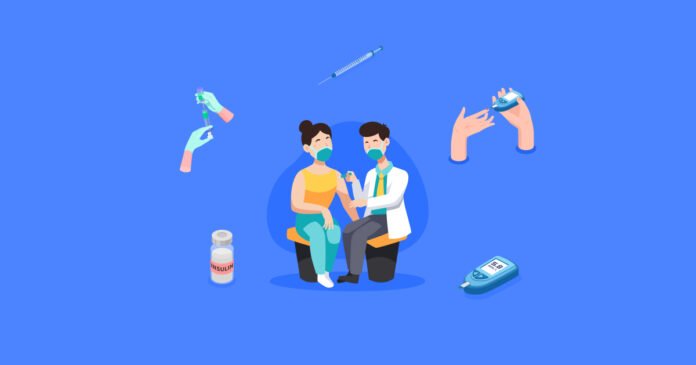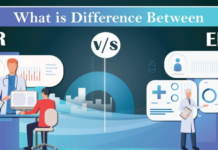Introduction
Diabetes is a complex condition. It interferes with the way your body uses sugar for energy.
Insulin typically functions in the body as a useful tiny messenger. It instructs your cells to absorb blood sugar, which is what they want for energy.
However, diabetes complicates matters. Your body might produce too little insulin at times, or it can have trouble using the insulin it produces. This makes controlling your blood sugar levels which are crucial for maintaining excellent health and feeling good, a much more difficult task.
This is where insulin injections come in handy occasionally, they act as a sort of stand-in for your body’s ineffective insulin.
Type 1 Diabetes and Insulin Dependence
Diabetes comes in a variety of types, the most common of which is Type 1 diabetes, which is distinguished by a particular immune-related condition. In one of the two types, the immune system is the one in charge and wrongly considers the cells responsible for insulin delivery as a threat and eliminates them. As a result of the ongoing assault, the organ suffers damage eventually resulting in the complete loss of the pancreas’s ability to produce insulin.
People with Type 1 diabetes are by all means dependent on the insulin sources external to their bodies since they cannot live without it. The body without insulin produces the same consequence as that of high blood sugar levels. Without insulin, things get out of balance fast. That’s why insulin injections aren’t just a nice-to-have, they’re lifesavers for people with Type 1. They basically give the body back something it desperately needs.
Insulin is a crucial hormone that helps cells absorb glucose, which is the body’s basic energy source, from the blood circulation. In Type 1 diabetes, the absence of frequent insulin injections can cause cells to starve, despite high blood sugar levels. Over time, this syndrome might lead to major health issues.
Type 2 Diabetes and Insulin Therapy
Type 2 diabetes, while the most common form, works a bit differently than Type 1. The main problem is that the body either isn’t making enough insulin or the insulin it does make isn’t working the way it should. Think of it like this: cells should be listening to insulin’s signal to take in sugar from the bloodstream, but in Type 2 diabetes, they’ve gotten a bit hard of hearing.
In the beginning, diabetes type 2 could be controlled by lifestyle modifications i.e., eating well and workouts which mostly come along with oral drugs. Even though these tactics are efficient during the early stages, it is likely that they will fail to maintain healthy levels of blood sugar when the disease progresses.
This means that the use of insulin injections should be considered an integral part of the treatment regime during this particular situation. They either increase or decrease the amount of insulin the body produces by giving it more or by supporting it to regulate its insulin better. Restoring blood glucose levels to the normal range is the goal.
How Insulin Injections Help
Insulin injections provide various advantages for people living with diabetes. By replicating the actions of insulin which is naturally produced, they directly affect the control of blood sugar levels. Here’s how they work:
- Cellular Glucose Uptake: The insulin injections I have been getting are as the messenger in the body that instructs the cells to open their doors and permit the glucose to come from the bloodstream. This process helps greatly to bring the blood sugar levels down.
- Energy Utilization: Once glucose passes inside the cell it can either get used for immediate energy requirements or can be put away for further use.
- Liver Function: In addition, when the diabetes patients take injections of insulin, this also goes to the liver that demands liver to stop glucose release. By this reason, glucose level in the blood also increases.
- Preventing Complications: The primary purpose of insulin injections is to bring back the normal amount of blood sugar and to keep it stable. Therefore, it is important to have proper dietary habits and avoid high blood sugar levels. Maintaining a balanced and healthy menu and energy control can prevent chronic disease in the long run – kidney failure, heart issues, neuropathy, and blindness.
Important Things to Remember
While insulin injections can be an essential part of diabetes management, it’s important to remember that they’re not the only tool in the toolbox.
- Not everyone with diabetes needs insulin: This is especially true for people with Type 2 diabetes in its early stages, where healthy eating, staying active, and sometimes oral medications might be enough to keep blood sugar in check. Hormonal agents such as insulin may be given in cases where these strategies struggle over a longer period of time.
- Different ways to get insulin: Insulin can be given by different methods. The most frequent method is by injections, but on the other hand, pumps are an alternative that give a continuous delivery of insulin around the clock, which may be suitable for some people.
- Insulin is just one part of the picture: The injections of insulin work best only when they comply with healthy eating, regular exercise, and keeping my blood sugar levels under control.
Conclusion
For several individuals with diabetes, particularly those with Type 1, the insulin injection is an essential medication of their treatment condition. Insulin is a hormone that the body uses in addition to the main function of the usual body process and makes the cells acquire the right energy (glucose).
The key objective of insulin therapy is to attain and maintain healthy blood sugar levels. Apart from making you feel better on a day-to-day basis, it also contributes to the prevention of the nasty and serious complications associated with diabetes. Although not always applicable for all diabetic patients, insulin injections can be considered an integral part of effective diabetes management and are therefore crucial for the achievement of a higher quality life.





